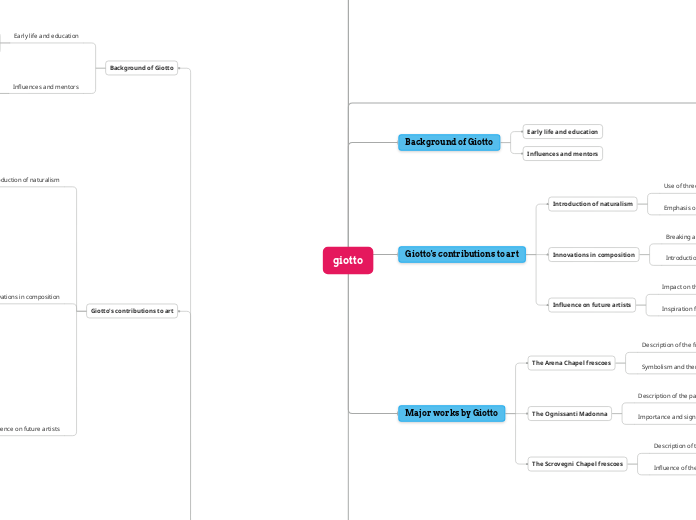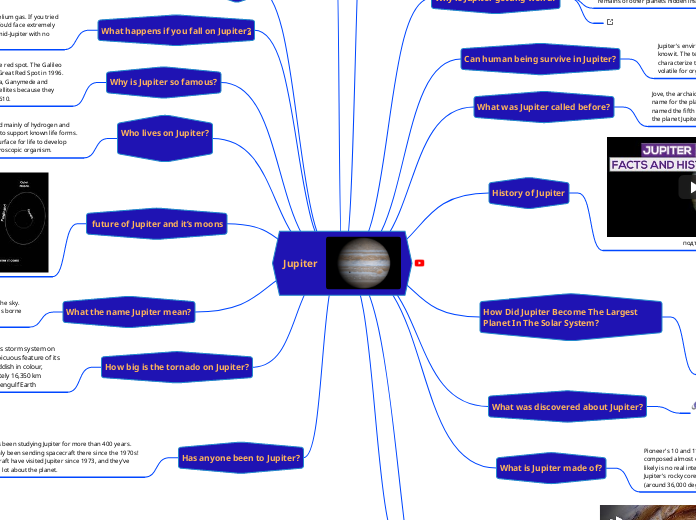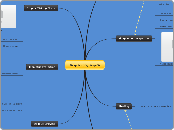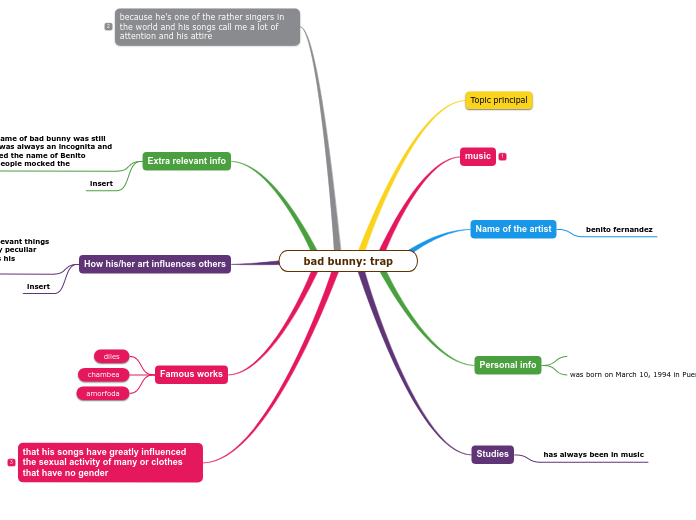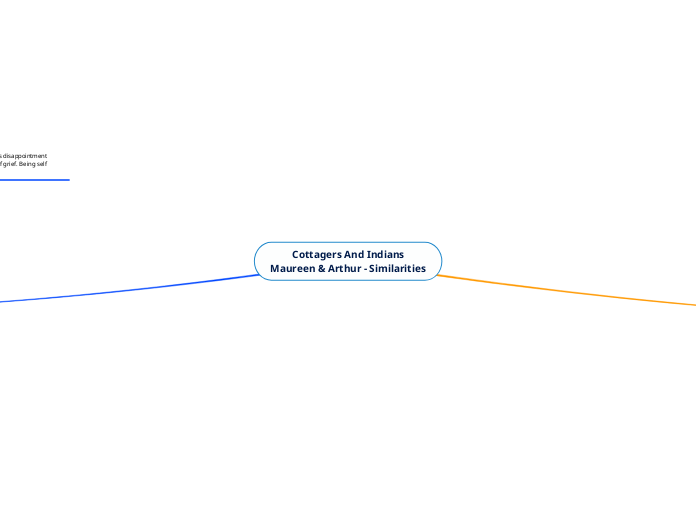giotto
Detailed breakdown
The ongoing recognition and admiration of his contributions to the artistic canon
Giotto's lasting legacy in the history of art and its appreciation
How his techniques and innovations influenced the development of linear perspective
Giotto's role in advancing the understanding and use of perspective in art
How his contributions laid the groundwork for future artistic innovations
Giotto's significant impact on the artistic ideals and techniques of the Renaissance
His dedication to capturing the physical characteristics of his subjects with realism
Giotto's meticulous attention to detail in his paintings
His skill in foreshortening
particularly in the representation of human anatomy
Giotto's ability to accurately depict objects and figures in perspective
The use of light and shadow to enhance the realism of his figures and scenes
Giotto's skillful use of color to create depth and atmosphere in his paintings
How the frescoes influenced future generations of artists
The Scrovegni Chapel's impact on the development of Western art
Analysis of the artistic techniques used by Giotto in the chapel
Examination of the themes and stories depicted in the frescoes
The role of the painting in establishing Giotto's reputation as a master artist
How the Ognissanti Madonna exemplifies Giotto's artistic style and innovations
Discussion of the artistic techniques employed by Giotto
Detailed analysis of the composition and subject matter of the painting
Interpretation of the messages conveyed through the artwork
Examination of the symbolic elements and religious themes in the frescoes
Analysis of the artistic techniques used by Giotto
Overview of the themes and subjects depicted in the frescoes
How Giotto's work served as a foundation for future artistic developments
The influence of Giotto's techniques and style on subsequent generations of artists
His role in shaping the transition from the Middle Ages to the Renaissance
Giotto's influence on the artistic ideals of the Renaissance
The use of sequential scenes to tell a story within a single artwork
Giotto's ability to convey stories and narratives through his paintings
His introduction of more naturalistic and lifelike compositions
Giotto's rejection of the flat and stylized Byzantine style
The departure from the stylized figures of Byzantine art
Giotto's focus on capturing human emotions and expressions
Exploration of spatial relationships between objects and figures
Giotto's ability to create depth and perspective in his works
Mentors who influenced Giotto's artistic style and techniques
Giotto's exposure to the works of Cimabue and other artists
His early artistic training and education
Giotto's birth and upbringing in Florence
Legacy and impact of Giotto
Enduring influence on art history and appreciation
Contributions to the development of perspective
Influence on Renaissance art
Giotto's artistic techniques and style
Attention to detail and realism
Mastery of foreshortening
Use of color and light
Major works by Giotto
The Scrovegni Chapel frescoes
Influence of the chapel on art history
The Ognissanti Madonna
Importance and significance in Giotto's career
Description of the painting
The Arena Chapel frescoes
Symbolism and themes depicted
Description of the frescoes
Giotto's contributions to art
Influence on future artists
Inspiration for other painters and sculptors
Impact on the Renaissance art movement
Innovations in composition
Introduction of narrative storytelling
Breaking away from Byzantine art
Introduction of naturalism
Emphasis on realistic figures and facial expressions
Use of three-dimensional space
Background of Giotto
Influences and mentors
Early life and education
